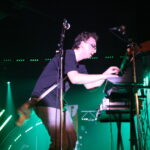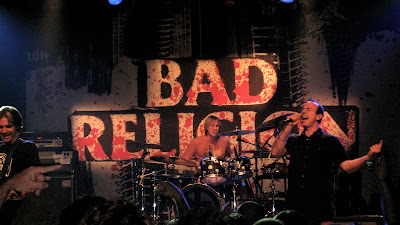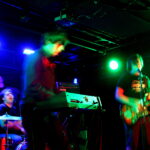
by Miné Salkin | Mar 26, 2009 | live action
Second video is up! Check it out:

the old prince still lives...
Born in London, Ontario, Shad Kabango is one of the hottest Canadian rappers today. SPINearth reporter Amanda Ash and I caught up with him in Kerrisdale, Vancouver, where he currently resides.
Shad moved to Canada at the tender age of 1 from Kenya in the early 1980’s, just as hip hop and rap were surfacing from the underground to the mainstream music scene. Originally of Rwandan descent, his family constantly moved around Africa as refugees before they settled to the east coast. Growing up with a balanced diet of The Fresh Prince of Bel Air, MTV then MuchMusic, Shad uses his worldview and unique perspective as you can hear for yourself in his latest album The Old Prince. These days, he’s playing in Austin, Texas at SXSW, and in June he’s taking off with Vans Warped Tour.
His smooth style, realistic outlook, and lyrical sensitivity make Shad’s music stand out, and his creative honesty will get you hooked on his tunes. If his words of wisdom about music make you want to hear more, check out Shad’s new blog.

by Miné Salkin | Feb 14, 2009 | live action
“If you are a dreamer, come in. If you are a dreamer, a wisher, a liar, a hoper, a prayer, a magic-bean-buyer. If you’re a pretender, come sit by my fire, for we have some flax-golden tales to spin. Come in! Come in!” — Shel Silverstein
These are the lines of a poet that have inspired a non-profit, collaborative, international multi-media art project. Lead by the independent Vancouver label Peppermill Records, the poetry of Shel Silverstein will come to life at Little Mountain Studios on Saturday, April 18.
Born in 1930, Silverstein was an American poet who was also accomplished as a musician, songwriter, screenwriter and cartoonist. He won a Grammy for his musical and lyrical composition of “A Boy Named Sue” which was performed by Johnny Cash in the early 1970’s. His quirky writing style, use of slang and bizarre story ideas was attributed to the fact that he never read the work of other writers in order to preserve and enhance his unconventional flair with words.
Like Silverstein, Peppermill Records has established an equally alternative aesthetic through its connections with eccentric underground artists from all over the world. Silverstein’s work as a children’s author has attracted the attention of the label, and this is where the entire musical project comes from.
Peppermill Records began as a pet project in 2005, but has grown tremendously with projects such as 52 Weeks, and last summer’s Lunar Jam, a three-day festival at Pierce Lake, B.C. Peppermill Records was created by the spirited 31-year-old Peter Krahn, who is a visionary drifter. During the summer months, Krahn is a nomadic tree planter, giving him the winter period to mull over new artistic events and ideas. The Shel Silverstein project hopes to capture the creativity and imagination of the childhood experience by turning his poetry into songs.
Krahn has always been interested in the intertextuality of art across all platforms and mediums. “For a while I thought about turning a poet into a musician. So I spent a while reading a lot of poetry and found one that was the most conducive to music. I just wanted the whole process of turning literature into melody,” he tells Discorder over a milky chai latté.
For weeks, Krahn sifted through a myriad of poetry books and researched obscure authors, when he finally picked Shel Silverstein’s work because it was a very positive element of his childhood. ”A lot of people have had really nostalgic memories of him,” Krahn says. For many people of all ages, Silverstein’s books such as The Giving Tree and Where the Sidewalk Ends are cornerstones of almost every North American childhood.

The Giving Tree, 1964. Image courtesy of wikipedia
So far, Krahn has nearly 60 artists working on the project, some of which are from the U.K., Norway, and Denmark. Some notable Vancouver acts include Buffaloswans, the rambunctious psychedelic rock group with a country twang who will be playing to “True Story,” 2-step folk artist Nick Caceres for “The Loser,” and super unconventional Hymns To Werewolves playing to “Falling Up.” As the project is international, Peppermill is planning for three other shows playing for the same event in Toronto, Oslo and Montréal as well.
Drawn by the creativity of children and their curiosity about the world, Krahn chose bands that would bring out the offbeat, but morally yielding effects of Silverstein’s works. The aesthetic of Peppermill encompasses all genres, but emphasizes the need to be innovative and multi-textural. The Shel Silverstein project envisions the multidimensionality of art attuned to the mind of the child—the curiosity and imagination—accompanied by equally compelling music. ”This is one of the more folkier themes… it sort of taps into everyone’s inner child,” Krahn says.
Musician, curator, and collage maker, Krahn is also an investigator. He describes the pursuit of new musicians as an artistic kind of voyeurism, an inquiry into places and ideas. “You can search all places of the world,” he explains.
“I always look for the artwork first, then I give it to the musicians when I invite them.” Krahn tirelessly searches and scans through MySpace looking for promising artists, filtering through bands whose musical subject matches his artistic vision for his projects. ”I really enjoy being a curator for others,” he says.
Sometimes it comes down actively pursuing a specific country to search for new hidden talents. After not hearing anything from Sweden for a while, Krahn picked up Ljudbilden & Piloten, an ambient folk music band with highly ethereal, experimental montages who will be performing “Rain.”
The Shel Silverstein Project is a very promising one. While Krahn isn’t making a profit from the event, he hopes to sell artwork and other merchandise at the show in order to provide some of the bands with funds for their time. All of the previous Peppermill projects are available on the website, as free downloads. It truly is the age of new music when record labels are willing to disseminate and promote the creativity of others without asking for money first.

by Miné Salkin | Feb 12, 2009 | live action
Special to the VANCOUVER SUN
VANCOUVER – Spurred by the ongoing dialogue about the global financial recession, a group of independent musicians will play free street shows for the public tomorrow night at undisclosed locations in the downtown east side.
The location of the “bank crawls” remains a secret for now. While they’re playing acoustic, unplugged sets, the entire event is enshrouded by secrecy due to noise concerns and the fear of sabotage. Three bands will play at three different banks, and a fourth set will be an electric show whose venue will be announced at the end of the third set.
Harlan Shore, 18, is the head organizer of the Dancing in Our Debt event. A recent graduate from Kitsilano Secondary School, he now owns a R-R-Records, an independent music label, and is the singer for the folk-alternative group Search Parties who will be playing at the show. The driving impetus of the project is to provide a creative, musical expression for Vancouver’s relationship with money.

The ticket
Shore says that he’s tired of the incessant, dreary dialogue about bailouts, stimulus packages, and investments being lost down the abyss of the recession. “All people think about is money,” he explains. “We can have fun without money. Let us take it to the bank; let us dance in our debt,” he scribbles on old bank statements.
Shore’s goal is remove the barriers between individuals and their financial concerns. “I’ve been thinking a lot about money lately, and about how my friends and family obsess about it too. Everyone’s feeling the impact of the economic crisis,” he said.
Originally hailing from Vancouver, the band list includes a myriad of genres, bridging the gaps between jazz, rock and ethereal explorations. Despite his youth, Shore is a seasoned indie musician whose collaborative projects enabled him to carefully choose the artists for Dance in Our Debt project. “I really wanted a list of bands whose music would be really good to dance to,” Shore says.
Collapsing Opposites, a quirky alternative rock group that sounds like the Canadian response to Built to Spill are set to open the first part of the four part event. Buffaloswans will be bringing in their trademark country-psychedelic hybrid genre to the mix, alongside the Bible-belting Chris-a-riffic’s spiritual explorations of faith and hope, to name a few.
“I know a lot of these bands personally, so I chose the ones that were the most diverse. There’s going to be a lot of atmospheric music, indie-pop styles, and more experimental saxophone-heavy styles too,” Shore says.
Besides the situational irony of playing recession-relief music in front of financial institutions, Shore explains how creativity can change a space. “The bank is where money is really present, and I want to transfer this space into a positive one. People are encouraged to think that the bank is only a stressful place, but that’s because we give it that importance and power over us.”
“I think we can pull it off. Don’t you want to see somebody dancing in front of an ATM machine for once?”

by Miné Salkin | Dec 10, 2008 | live action
The first night of the 3-day Vancouver rock show took place at the Biltmore Cabaret. Two years ago this was probably the most depressing, dilapidated bar along the Kingsway corridor, but since the renovations, it has been hosting some of the hottest bands on the local music scene.
Twin Crystals started off the show with their huge, bombastic electro-heavy sounds. The digital punk-rock trio hybrid are best described as the kind of band that crafts tunes catering to an ADD-riddled generation – fast, catchy, and loud as hell. Drummer Jordan Alexander pounded his set with a superhuman like determination, while frontman keyboardist Jesse Taylor repeatedly screamed “Go to sleep! Go to sleep!” before languishing in a pool of psychedelic, distorted sound waves.
Sandwiched between two heavy acts, Said the Whale came on quickly and entreated the audience to a warm plethora of sounds that were both soothing and invigorating. Playing fresh tunes from their re-released album Taking Back Abalonia, the indie quintet brought a late summer glow to the show. Caught somewhere between the coolness of the Shins and the spiritual ferocity of Broken Social Scene, Said the Whale was the best act of the night.
Ladyhawk was the most anticipated act at the Biltmore, but afterwards there was a sense of disappointment. In the alleyway leaving the show one could overhear the conversations amongst the hipsters, one of whom was describing a Ladyhawk as “a huge plaid beardo bro down.”
Day two was tremendously impressive. More flavour and variety of sounds were played at the gutted-out Storyeum basement in Gastown. Aside from being a bigger, newer space, the venue had two stages going on either side of the building which allowed for smooth set changes and less waiting time for the rest of us.
Prairie-raised Wendy McNeill played music for the heartbroken, using a variety of unusual instruments ranging from the accordion to tiny music boxes. McNeill’s free spirit filled the dark venue as she sang songs about deception and illusion, begging the audience with thoughtful, voyeuristic lyrics such as “tell me what it’s like/ when no one’s watching,” while polishing off her experimental indie folk sounds with the clear “ching” of a triangle.
Another memorable act of the evening was Pacifika, an alternative rhythmic latin group, that incorporates subtle undertones resonating from their acid jazz influences. Adding tremendous sensuality and softness to the blend, the trio combined dub, electronica and heavier beats while sweeping through the eclectic sounds of latin America over nylon-stringed guitars. Anchored by Toby Peter, a rather dominant bass player, singer Silvana Kane’s voluptuous voice added balance and feminine intimacy to the set list.
On the other hand, Woodhands‘ performance was blistering, deafening and amazing. With just two bodies on stage , the electro-pop duo filled the second stage space with relentless energy and impressive musicmanship. Vocalist Dan Werb showed his mastery of two electric keyboards, synths and drum machines, while intermittently dancing around the stage without the slightest indication of fatigue. “Chocolate” Paul Banwatt drummed demonically, adding more depth and fervour to the huge electro, heart-thumping beats.
Despite its quasi-corporate sponsorship, Transmission succeeded as a celebration of independent and local Vancouver artists who decorate the music scene across the whole gambit of genres. From the high strung, teched out electro fiends, the plaid-sporting greaseballs, or the quiet bookish types, this three-day show had something for everyone.

by Miné Salkin | Sep 14, 2008 | live action
Bad Religion
September 14 2008
Commodore Ballroom
 It’s hard to imagine a 15 year-old frontman Greg Graffin and his school friends deciding to form Bad Religion, the most epic, accomplished and inspiring punk rock bands. How could one envision such libertarian punk fantasies, or such immaculate hardcore harmony at such a tender and suggestible age?
It’s hard to imagine a 15 year-old frontman Greg Graffin and his school friends deciding to form Bad Religion, the most epic, accomplished and inspiring punk rock bands. How could one envision such libertarian punk fantasies, or such immaculate hardcore harmony at such a tender and suggestible age?
The night kicked off with two nondescript screamo bands that sucked so badly that no more mention shall be made of them. It was a Sunday night, and the angry punks in the crowd kept chugging back more beer, checking the time, and impatiently pushing up closer to the front, waiting for the show to start. There was a definite sense of growing frustration; the Commodore’s decision to downsize drinks from bottles to plastic cups coupled with the fact that it was they worst night of the week in which to hammered was on everyone’s mind. Finally the legendary sextet walked onto the stage, and the body of the crowd converged to a dense square-shaped mass of excitement.
They started the show with a highly energized performance of “21st Century Digital Boy” originally recorded for their fifth album Against the Grain (1990). It’s likely one of the best songs to start out with, not just because it’s infectious and catchy, but we can all relate to Graffin’ lament that “I don’t know how to live/ But I got a lot of toys.” It also brings to mind all of our mothers strung out on valium, an sad image that is surprisingly “effectual.” Selecting from a wide range of singles, and some not-so-common tracks like “Anesthesia,” BR gave a fantastic set list that sampled from the whole 28-year span of their discography.
Three of the six band members on stage were the original founding members, and they were easily spotted. Graffin delivered a vibrant, defiant performance: his iconic finger-pointing and unrelenting stare gave him an edge to his philosophical rants. Arguing for a rejection of consumerist culture and social conformity, usually guys this age come across as being pedantic or just full of it. Even those more sensitive of loud, distorted music should venture into the lyrical world of BR. Songwriter Graffin holds a Ph.D., and his understanding of politics, injustice, and individual suffering is delivered with poetic integrity, and reinvents the idea of social responsibility through critical thinking and non-conformity.
 Bass guitarist Jay Bentley seemed to have the most fun on our Vancouver stage. He jumped around and sweated the most profusely, smiling demonically like some intense, disturbing fat kid eyeing your DQ Parfait on the bus. Speaking of which, lead guitarist Brian Baker looked terribly overheated, unfit, and generally sagged instead of rising to the occasion. While performing the quintessential punk song “Come Join Us” off the 1996 album The Gray Race, Baker hogged the one fan the entire time. Come on, Brian.
Bass guitarist Jay Bentley seemed to have the most fun on our Vancouver stage. He jumped around and sweated the most profusely, smiling demonically like some intense, disturbing fat kid eyeing your DQ Parfait on the bus. Speaking of which, lead guitarist Brian Baker looked terribly overheated, unfit, and generally sagged instead of rising to the occasion. While performing the quintessential punk song “Come Join Us” off the 1996 album The Gray Race, Baker hogged the one fan the entire time. Come on, Brian.
Overall the show was pretty fantastic. They may be getting older, but better in the same way as a wine slowly ages to perfection. A punk wine, that is.

by Miné Salkin | Aug 31, 2008 | live action
August 31, 2008
Day One

It was one of those lazy late summer afternoons that you could eat with a spoon. While most music festivals tend to have an anxious, apprehensive tension amongst the crowd, the grounds were covered by hippies, young parents, and even the occasional punk who were all sitting comfortably on the warm grass.
The Evaporators came on sharply, and started to stir up the crowd with their bare chested antics. Clad in white jumpsuits with red and blue stripes, Nardwuar the Human Serviette entreated us to a good larf, exposing his wooly chest, screaming lyrics about homelessness, and countless other acts of unconventional behavior. While the set list focused on their last album Gassy Jack & Other Tales, one could argue that what the band lacks in actual musical talent, they make up for in hilariously eccentric body play. Running through the crowd with maracas and a demented grin on his face, or climbing onto the audience to create a human piano stand, The Evaporators impressed us all with their relentless anarchist spirit.
After the thrash, Deerhoof of San Francisco changed the atmosphere with their quirky alt-rock sound delicately coupled with the little-girl voice of singer Satomi Matsuzaki. Rocky but sultry, the quartet rocked out with classic songs such as “Twin Killers” and other tunes from The Runners Four. Their aural quirkiness was matched by their physical gestures, as Greg Saunier and John Dietrich plucked and played in what seemed like borderline seizure-type motion.
Destroyer’s performance was weird and cacophonic, but not in the way that most people enjoy that musical experiment. Dan Bejar’s lyrics of love lost and spiritual confusion were cryptic and challenging, but his voice brings to mind a love-sick, drunken hobo. Coupled with the guitarist’s unreasonable use of tremolo, this act left much to be desired.
While the fest had its share of eccentricity, Andrew Bird and Neko Case had an altruistic soothing effect to counteract it. Bird, the singer/songwriter/multi-instrumentalist from Chicago Illinois was intoxicating as the twilight began to set in. Singing beautiful things about intuition amidst a backdrop of cello strings and pizzicato violin, Bird was one of the best acts of the night.
Following him was Neko Case, who played songs from her upcoming album due out in March 09. While she belts it out with The New Pornographers, Neko’s performance was humbling and sweet, a familiar country feeling where the singer croons softly and laughs at herself between songs. She sang “I wish I was the Moon tonight” in a way that brought to mind a modern day Patsy Cline. Sad but spirited, Neko’s voice was endearing and humble to the core, and her lyrical component was touching as it revealed the wisdom of an old soul caught in the commercialism of the 21st century.
It’s hard to imagine a 15 year-old frontman Greg Graffin and his school friends deciding to form Bad Religion, the most epic, accomplished and inspiring punk rock bands. How could one envision such libertarian punk fantasies, or such immaculate hardcore harmony at such a tender and suggestible age?
Bass guitarist Jay Bentley seemed to have the most fun on our Vancouver stage. He jumped around and sweated the most profusely, smiling demonically like some intense, disturbing fat kid eyeing your DQ Parfait on the bus. Speaking of which, lead guitarist Brian Baker looked terribly overheated, unfit, and generally sagged instead of rising to the occasion. While performing the quintessential punk song “Come Join Us” off the 1996 album The Gray Race, Baker hogged the one fan the entire time. Come on, Brian.







